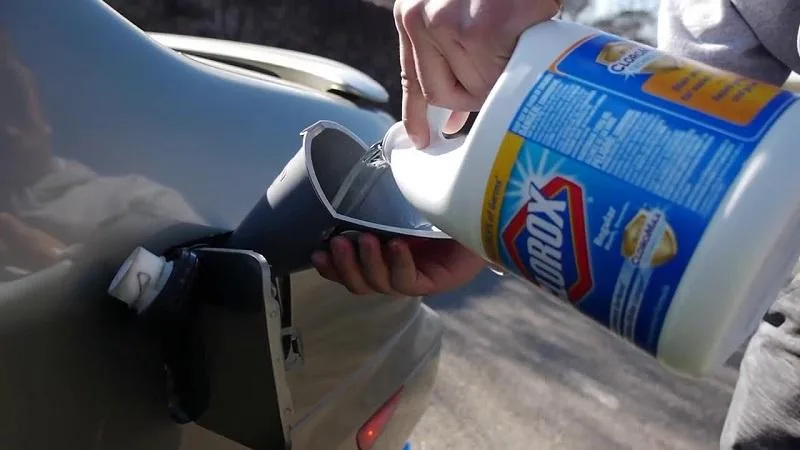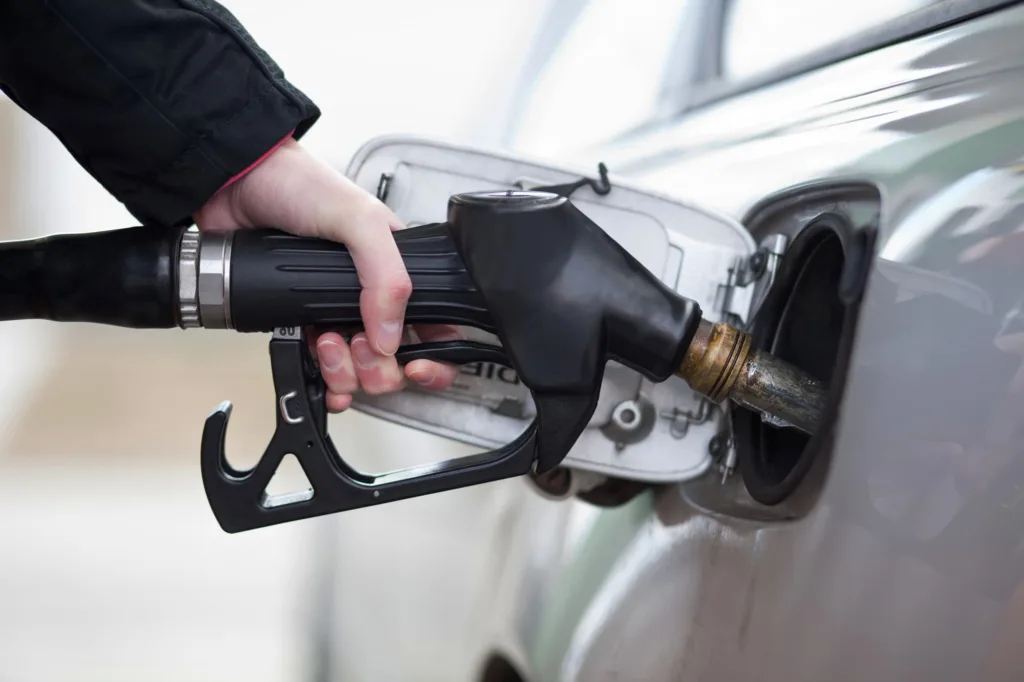Last updated on March 6th, 2024 at 04:53 pm
Are you aware of the potential disaster that can happen when you unknowingly introduce the worst thing to put in gas tank?
From sugar to water and even diesel in a gasoline car, the consequences can be severe. Welcome to our guide where we uncover the dangers lurking in your fuel system. The repercussions of these harmful substances can range from costly repairs to significant environmental impact.
By understanding the risks associated with improper fueling, you can safeguard your vehicle and wallet. Join us as we explore the detrimental effects and provide valuable insights on how to prevent such mishaps. It’s time to protect your gas tank from the worst, starting with the right knowledge.
Worst Thing To Put In Gas Tank
When it comes to keeping your car running smoothly, what you put in your gas tank matters more than you might think. While gasoline is the obvious choice for fueling your vehicle, there are certain substances that should never find their way into your tank.
In this guide, we’ll explore the worst thing to put in gas tank, along with the potential consequences.
Sugar
Believe it or not, pouring sugar into your gas tank is more than just a prank; it can be a recipe for disaster. Sugar doesn’t dissolve in gasoline but instead settles at the bottom of the tank, forming a sludgy mess that can clog fuel filters and injectors.
This blockage disrupts the flow of fuel to the engine, leading to stalling, engine misfires, and ultimately, costly repair
Motor Oil
While motor oil is essential for lubricating your engine, it should never be used as a substitute for gasoline.
Motor oil is not designed to burn as fuel and can leave behind harmful residue in the fuel system. Using motor oil in your gas tank can lead to engine misfires, excessive smoke from the exhaust, and increased emissions.
Water
Water may seem harmless, but when it finds its way into your gas tank, it can spell trouble. Water in the fuel system can cause corrosion and rust, leading to damage to vital components such as the fuel pump and fuel lines.
Additionally, water can disrupt the combustion process, causing rough idling, hesitation, and decreased engine performance.
Brake Fluid
Brake fluid is a highly corrosive substance that should never come into contact with your vehicle’s fuel system.
Accidentally pouring brake fluid into your gas tank can cause extensive damage, as it corrodes rubber and plastic components. This corrosion can lead to fuel leaks, engine stalling, and complete system failure.
Bleach

Bleach, a household cleaning staple, should never find its way into your gas tank. Pouring bleach into the tank can lead to disastrous consequences for your vehicle’s fuel system.
Bleach is a highly corrosive substance that can damage rubber seals, hoses, and other components, causing leaks and contamination. Additionally, bleach can react with gasoline, forming harmful compounds that can disrupt the combustion process and damage engine components.
Ingesting bleach-laced fuel can also be harmful to the environment and wildlife. Keep bleach far away from your gas tank to avoid costly repairs and environmental damage.
Antifreeze
Antifreeze, also known as coolant, is designed to regulate engine temperature and prevent overheating. However, pouring antifreeze into your gas tank can have disastrous consequences.
Antifreeze contains chemicals that are incompatible with the fuel system, leading to corrosion, leaks, and engine damage. Ingesting antifreeze can also be harmful to the environment and wildlife.
Diesel Fuel in a Gasoline Car (and Vice Versa)
Using the wrong type of fuel in your vehicle is a common but costly mistake. Putting diesel fuel in a gasoline car, or vice versa, can lead to serious engine damage.
Diesel fuel has a higher viscosity than gasoline and lacks the lubricating properties needed to protect gasoline engines. The result? Premature wear and tear on engine components, leading to expensive repairs.
Soda
Pouring soda into your gas tank might seem like a quirky fix or a prank, but it’s a terrible idea. Soda contains sugar and other additives that can clog up your fuel filter and injectors, leading to engine issues.
Plus, the carbonation in soda can create pressure build-up in the fuel system, causing potential damage. Stick to using proper fuel for your vehicle to keep it running smoothly and avoid costly repairs.
Salt
Adding salt to your gas tank is a surefire way to cause serious damage to your vehicle. Salt doesn’t mix with gasoline but instead settles at the bottom, corroding metal components and causing rust.
This corrosion can lead to leaks, clogs, and engine malfunctions, ultimately resulting in costly repairs. Avoid the temptation to use salt as a DIY solution for fuel system issues, as it can do more harm than good. Keep your gas tank free from salt to ensure smooth and trouble-free operation.
Urine
Pouring urine into your gas tank is a grave mistake with dire consequences. Despite being mostly water, urine contains harmful compounds like urea and ammonia that can corrode your vehicle’s fuel system.
These corrosive elements can damage fuel lines, injectors, and other components, leading to costly repairs. Additionally, the strong odor of urine can linger in the car, creating an unpleasant driving experience. Avoid this disastrous decision to ensure the longevity and performance of your vehicle.
Alcohol-Based Liquids
Alcohol-based liquids, such as rubbing alcohol or hand sanitizer, should never be used as fuel for your vehicle. These liquids can damage the fuel system and cause corrosion to metal components. Additionally, alcohol-based fuels can lead to engine overheating and poor performance.
Paint Thinner
Paint thinner is not suitable for use as fuel and can cause significant damage to your vehicle’s engine. The chemicals in paint thinner can corrode metal components and lead to engine failure.
If you accidentally pour paint thinner into your gas tank, it’s essential to have your vehicle inspected by a professional mechanic as soon as possible.
How to Detect if Something’s Been Added to Your Car’s Gas Tank

- Difficulty Starting Your Car: If your car suddenly becomes hard to start, it could be a sign that something is amiss in your gas tank. Contaminants or improper substances added to the fuel can disrupt the combustion process, making it harder for the engine to start.
- Performance Changes: Pay attention to how your car behaves on the road. If you notice sudden drops in fuel efficiency, rough engine performance, or difficulty starting, it might be a clue that someone has tampered with your fuel system.
- Engine Misfires: Pay attention to any irregularities in your engine’s performance, such as sudden jerking or stuttering while driving. Engine misfires can occur when the fuel mixture is compromised due to foreign substances in the gas tank.
- Excessive White Smoke from Exhaust: Noticeable white smoke coming from your car’s exhaust can indicate a problem with the fuel system. When non-gasoline substances are introduced into the tank, they can create excess emissions and produce white smoke as a result.
- Unusual Odors: Keep an eye (or rather, a nose) out for any strange or strong smells emanating from your vehicle. Unusual chemical or unfamiliar odors near the fuel system could be a telltale sign that someone has tampered with your gas tank.
- Visual Inspection: Take a moment to visually inspect your gas tank and fuel cap for any signs of tampering or foreign objects. Look for scratches, dents, or residue near the fuel filler neck, which could indicate unauthorized access to the tank.
Preventing the Worst Things from Going Into Your Gas Tank
Preventing the worst things from ending up in your gas tank is essential for maintaining your vehicle’s health. Here’s how to safeguard against such mishaps:
- Stay Informed: Educate yourself about the dangers of putting harmful substances in your gas tank, such as sugar, water, or household chemicals.
- Secure Your Vehicle: Park in well-lit areas or use security measures like locking gas caps to deter potential tampering or sabotage.
- Regular Inspections: Routinely check your gas cap and the area around your gas tank for any signs of tampering or suspicious activity.
- Use Trusted Sources: Only purchase fuel from reputable gas stations to minimize the risk of contaminated or low-quality fuel.
- Avoid DIY Solutions: Refrain from experimenting with homemade remedies or additives, as they can cause more harm than good.
- Be Mindful: Stay vigilant and attentive when refueling your vehicle, ensuring that you’re using the correct fuel type and avoiding any accidental spills or contamination.
By following these preventive measures, you can keep your gas tank safe from the worst and maintain optimal performance and longevity for your vehicle.
FAQs on Worst Thing To Put In Gas Tank

Is It Safe to Use Water in My Gas Tank to Save Fuel?
No, using water in your gas tank is not safe or effective for improving fuel efficiency. Water can cause corrosion and damage to the fuel system, leading to costly repairs.
Will Pouring Bleach in My Gas Tank Clean the Fuel System?
No, pouring bleach into your gas tank will not clean the fuel system. Bleach is highly corrosive and can damage the engine and fuel lines, leading to expensive repairs and potential safety hazards.
Can I Improve My Car’s Performance by Adding Sugar to the Gas Tank?
No, adding sugar to your gas tank won’t enhance performance. It’s a common myth that sugar damages engines. While it won’t dissolve in gasoline, it can clog filters and injectors, leading to engine issues.
How to Determine If Water Has Been Added to Your Gas Tank?
If you suspect water in your gas tank, watch for symptoms like engine sputtering, difficulty starting, or decreased performance. Water can cause these issues by disrupting fuel combustion. A professional inspection can confirm water contamination, helping prevent further damage.
Conclusion
In conclusion, it’s crucial to understand the potential risks associated with the worst thing to put in gas tank. From sugar and water to diesel fuel, the consequences of these mistakes can be severe and costly.
By staying vigilant and avoiding these harmful substances, you can protect your gas tank from damage and ensure smooth operation. Remember, prevention is key, so always double-check before adding anything to your fuel system.
By taking proactive measures and staying informed, you can keep your gas tank—and your vehicle—in top condition for years to come. Don’t let the worst thing to put in your gas tank become your worst nightmare.
RECOMMENDED POST What To Put In Gas Tank To Ruin Engine? – Ultimate Guide
RECOMMENDED POST How to fix EPC light on VW
FOLLOW US
